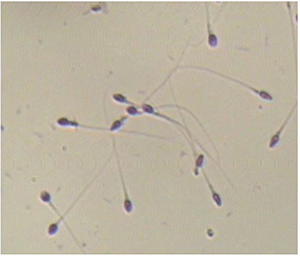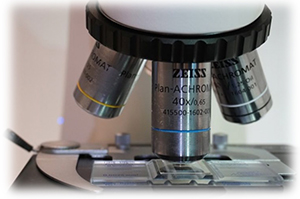Sperm Donation
What is sperm donation?
Sperm Donor refers to a man (a donor) donating his sperm to another couple (a recipient couple) to help them to have a baby.
Who needs to consider sperm donation?
There are many reasons why people use donated sperm. Men with the following conditions may have to consider sperm donation:
-
Azoospermia, due to obstructive or non-obstructive causes. Men with azoospermia can undergo Surgical Sperm Retrieval to collect sperm for use in In-vitro Fertilization (IVF) treatment. Alternatively, he can choose to receive donated sperm to help his wife conceive. Azoospermic men who have failed to retrieve sperm from a surgical sperm retrieval procedure can also consider sperm donation.
-
A Known Hereditary Disease, such as a chromosomal rearrangement or a monogenic disease. Men with these conditions may pass the genetic abnormality to their children. They can have the option of undergoing IVF and Pre-implantatation Genetic Testing (PGT) to select embryos not affected by the disease for transfer. Alternatively, they can choose to use sperm from a donor who does not carry the condition so as to avoid the risk of having a child with the disease.
Is sperm donation legal in Hong Kong?
Yes, sperm donation is legal in Hong Kong. Like donating blood, kidney, heart and other organs, donating sperm is a gift, a voluntary act of kindness. It is ILLEGAL to buy or sell sperm in Hong Kong. A recipient couple cannot reward the donor for the supply of his sperm.
How to find a sperm donor?
Unlike many other countries, there is no sperm bank in Hong Kong that can help matching sperm donors and recipients. There are two ways to find a sperm donor:
-
The commonest means for a couple to find a donor is to ask a relative or a friend to be a designated donor.
-
There are sperm banks overseas that help to recruit donors and match them to recipients. If a couple wish to explore this option, they have to be aware of the legal requirements in Hong Kong.

Who can be a potential sperm donor?
A sperm donor should be between the ages of 18 and 54 years, in good health and without any personal or family history of hereditary disease or abnormal baby. It is preferred if he has had a child of his own, but this is not essential. In addition, if the donor has donated his sperm to other couples, his donation should not have resulted in more than 3 live birth events in Hong Kong.
What steps does a potential donor have to go through before he can donate his sperm?
A potential donor has go through the following medical assessments:
-
A general body examination to make sure that he is healthy;
-
Blood tests including CBP and MCV, blood and Rhesus groups;
-
Blood tests to exclude certain infectious diseases including Hepatitis B, Hepatitis C, Syphilis, HIV and Cytomegalovirus (CMV);
-
Urine tests to exclude Gonorrhoea and Chlamydia infections;
-
Blood tests for Expanded Carrier Screening (ECS) and chromosome check (karyotyping) to screen for genetic diseases;
-
A semen analysis.
Normal semen parameters:
Volume: ≥ 1.5ml
Density: ≥ 15 x 106/ml
Total Motility: ≥ 40%
Morphology: ≥ 4%*
* Strict criteria

Assessment of sperm quality
However, infectious diseases and genetic diseases cannot be totally excluded by these investigations. Therefore, recipients need to be fully aware of this limitation before accepting sperm donation.
After passing the medical assessments, the potential donor has to meet a counsellor who will discuss with him the social and psychological implications of sperm donation. When he is fully informed and is comfortable about donating his sperm, he can then sign the consent forms.
What steps does a potential recipient couple have to go through before they can receive sperm donation?
A potential recipient couple has to undergo screening tests to enable a safe and appropriate match with the donor and to ensure the woman’s safe passage through the treatment. The recipient couple has to be assessed by a counsellor to make sure they understand the implications of the sperm donation.
The recipient wife has to go through the following medical assessments:
-
A general body examination including a transvaginal pelvic ultrasound scan to make sure that she is healthy;
-
Blood tests including CBP and MCV, blood and Rhesus groups, and Pap smear test if appropriate;
-
Blood tests to exclude certain infectious diseases including Hepatitis B, Hepatitis C, Syphilis, HIV and Cytomegalovirus (CMV);
-
Vaginal swabs to exclude Gonorrhoea and Chlamydia infections;
-
A blood test to confirm Rubella immunity;
-
Optional blood tests for Expanded Carrier Screening (ECS) and chromosome check (karyotyping) to screen for genetic diseases.
The recipient husband has to go through the following medical assessments:
-
Blood tests for CBP and MCV, blood and Rhesus groups;
-
Blood tests to exclude certain infectious diseases including Hepatitis B, Hepatitis C, Syphilis and HIV.
How long does it take before starting the fertility treatment?
Once a suitable sperm donor is identified, the medical assessments and counselling of the donor and the recipient couple can be completed in about 2-3 months. When all parties feel comfortable with the donation process, the designated donor can submit a semen sample for freezing. The sperm sample will be quarantined for 6 months. The donor will have to return for tests to make sure that he does not have infectious diseases before the frozen sperm sample can be released for use by the recipient couple for fertility treatment.